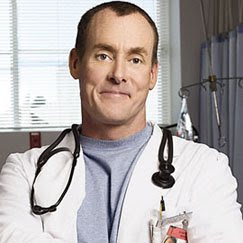 "Those adverts with their sure sense of how to play on our doubts and insecurities are a symptom of the restless energy of American capitalism."
"Those adverts with their sure sense of how to play on our doubts and insecurities are a symptom of the restless energy of American capitalism."In his dreary editorial for the BBC, Washington correspondent Kevin Connolly delivers the Beeb's mandatory sneer at the vagaries of American culture - but incidentally manages to mention a very valid concern.
Is it really wise to allow pharmaceutical companies to advertise prescription-only drugs on the television?
If you've never been to America, you won't have experienced this phenomenon (and might even be skeptical of it, since it sounds so ridiculous.) But take it from me - the majority of commercials on Cable networks are for drugs.
Pharmaceutical companies advertise drugs for a variety of illnesses - from asthma to indigestion - and suggest that the viewer; 'ask your doctor if this drug is right for you.'
What does this result in? Millions of Americans going to their doctors and demanding he switch them from their current prescription (which works just fine) to the shiny new drug they saw on the television.
It's a logical progression, given the mindset cultivated by privatised health care. When you go to the doctor, you're not a 'patient,' but a 'customer' and that puts you in the driving seat regarding your health care. Unlike the NHS, if your American doctor doesn't switch your prescription to the shiny drug you saw on television, you can leave and find a doctor who will.
(Then again, most NHS surgeries are so blasé, you're lucky to get an aspirin and a pat on the head in the first place.)
When you give your bossy and demanding 'patient/consumer' access to medical websites like Web M.D., you end up creating a monster: An ignorant, opinionated customer who thinks their Internet-gleaned diagnosis puts them on equal footing with somebody with a doctor's licence.
This is why you end up with ridiculous situations like doctors being pressured into prescribing antibiotics for patients who have colds (read more about that here.)
What America really needs is a doctor who'll sit their patients down and give it to them straight.
"There's not a damn thing wrong with you. Go back to work."
"Lady - you have a cold. Deal with it."
"You have indigestion because you eat too much. Here's a leaflet about Weight Watchers."
"Your depression is caused by being 34 years old and living in your parent's basement. I'm cancelling your Prozac. Here's a prescription for getting up off your arse and getting a damn job."
And, of course, the most important one:
"You want to switch your current prescription drug for that one you saw on TV?" SLAP! "Get out of my office and quit wasting my time."
What America really needs is a doctor who's like the crabby, irascible Dr Cox on Scrubs.
“I’m a doctor. And we believe that without surgery, a patient in your condition can suffer from a major case of deadness.”


4 comments:
LOL I love Scrubs. However, your post just made me think about how desensitized I've become to pharmaceutical commercials. Yet, after reading your post I've also realized how silly the relationship between doctor/patient has become because of the likes of pharmaceutical commercials and webMD. Something to think about...
LOL--love your prescriptions! Real medical conditions aside, I happen to know people who fall into this category completely. Given a choice from a physician between modifying diet/lifestyle to alleviate symptoms or take a damn pill, this person chooses the pill, then wonders why the cost of insurance is so high. Duh.
Excellent! I had a doctor give me legalized crack when I was in 2nd grade, I believe the medical term for it was 'Ritalin'. There was really nothing wrong with me, I just wasn't in the center of the bell curve because I was always daydreaming because school was about praying and reading the bible over and over and that got boring. I consider that hardly an education at all!
Did you make up that ad or do they seriously advertise LSD?!
Boy, overmedicating sucks. Thankfully I haven't seen prescription drugs advertised here yet, except of course the medicine companies who pay doctors generously to use their stuff.
Post a Comment